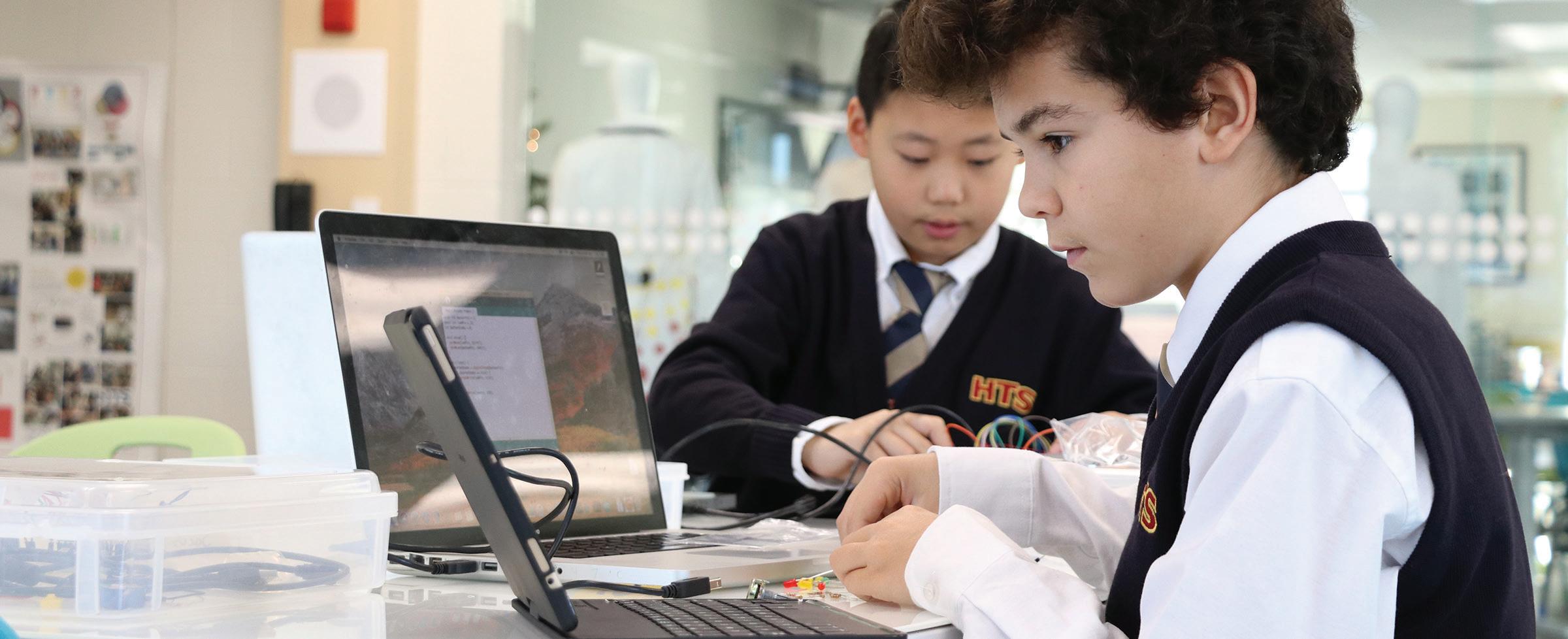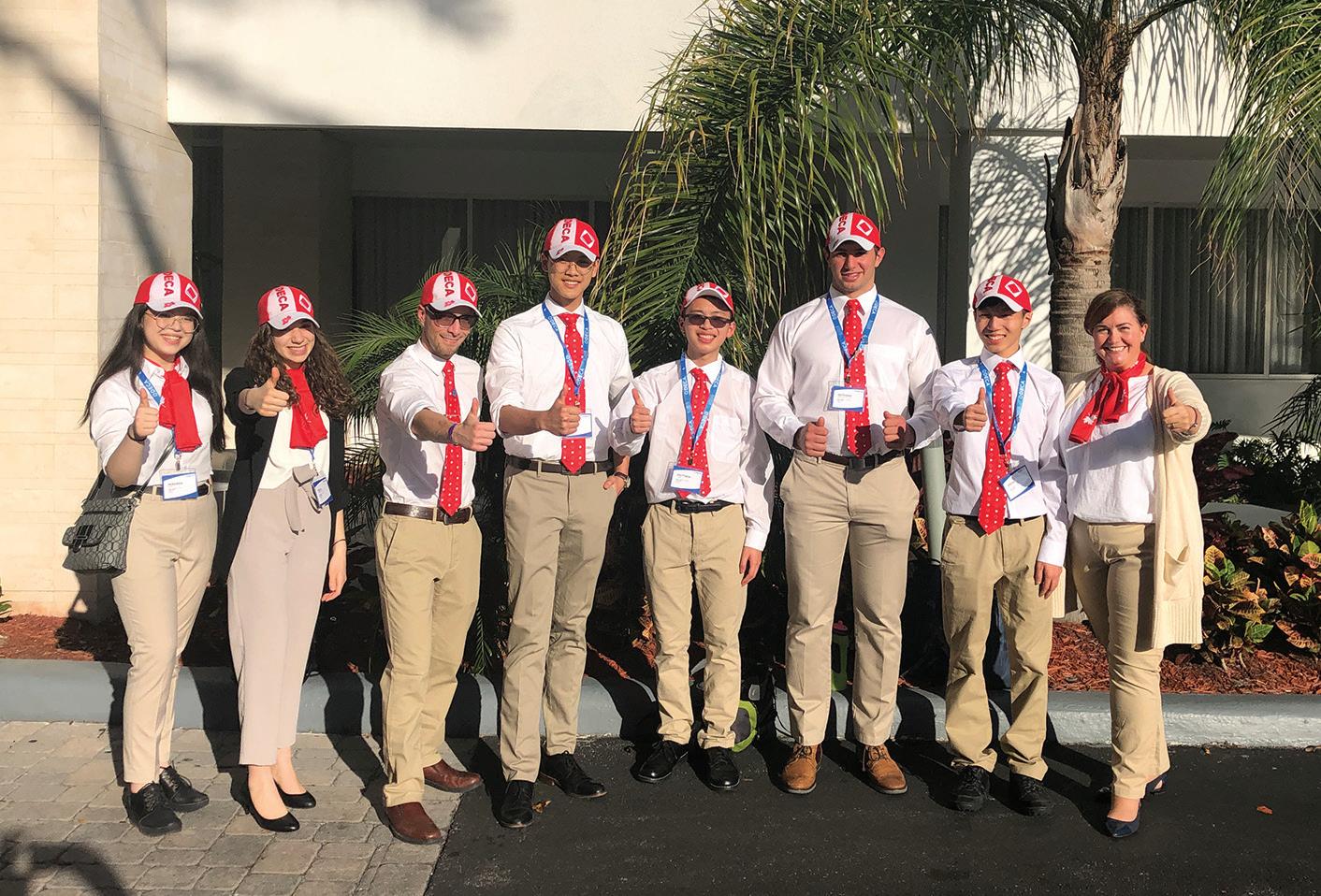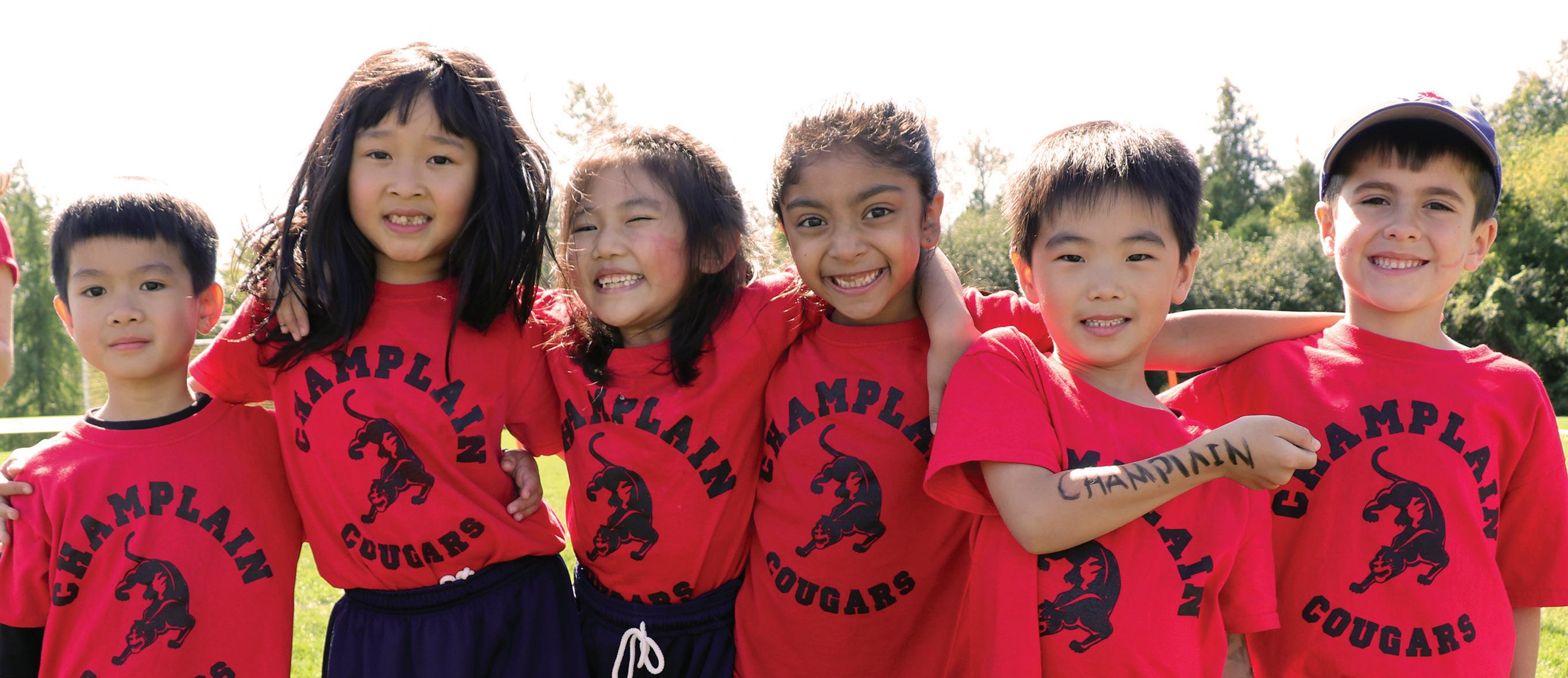
6 minute read
Continuous Learning Is Fundamental in Education
By Sandra Herbst, Global Leader in Learning and Leadership Development
For some people, air travel is a way to get to their holiday destinations; for others, it’s how they get to their next place of work. As a business traveller, I spend a lot of time in the air, and thankfully I’ve experienced only a couple of emergency landings. You may be wondering why I begin this piece with such a reference, so allow me to make the connection. Advancements in aviation do not negate the fundamentals of flight, but they do make certain past procedures and protocols obsolete. As a result, I recognize that the experience a pilot and co-pilot bring is crucial, but continuous training and upgrading is equally important. In other words, a successful experience for me is directly connected to the expertise the crew brings to each flight.
Research in education is also unequivocal in this area. School improvement and student achievement “is built on adult learning, which changes over time and can be encouraged and supported by savvy school leaders. Moreover, [teacher practice] develops in complex ways as teachers grow and learn, and is dependent on critical support from colleagues and principals” [Fahey and Ippolito, "How to Build Schools Where Adults Learn," Journal of Staff Development, Vol. 35, No. 2 (April 2014)]. Just like pilots, educators rely on their deep experience, which is refined and revised over time through processes of professional renewal and development.
That brings us to the work unfolding at HTS. For the past five years, the faculty have focused on gaining a deeper understanding of effective classroom assessment, evaluation and reporting practices, to better support high levels of student learning and achievement, communicate meaningfully with parents and fulfil required legal and regulatory responsibilities. What they have come to know is that there is no single right answer to the questions they are collectively asking, but rather multiple pathways that respect the structure of each unique subject area and the different ways that students learn and demonstrate that learning.
Today, assessment, evaluation and reporting are different from the practices that educators used during the 20th century, whether the issue is about assigning zeros, what counts as reliable and valid evidence and data, or equity vs. equality. It is no wonder that teachers, students and parents alike may experience some cognitive dissonance in this area. However, the HTS faculty have tackled these issues by looking both to research and to their own experiences. This is what makes HTS a leading educational organization. Like the pilots mentioned earlier, HTS staff are building on what they already know and revising their understanding based on research and evidencecentred practices.
Let me share with you a couple of aspects of assessment, evaluation and reporting that have been transformed in the last 15 years or so.
When I began my teaching career, the mark that I put on the report card was the result of a deceptively simple algorithm. More specifically, I added up all of the scores that my students had received on tests, quizzes and assignments and calculated the average. This seemed to make sense at the time, but since then, what students need to be able to know, do and articulate in any subject area has become increasingly complex; my simple algorithm would no longer serve to uncover the truth about my students’ learning. From a 21st-century perspective, our curricular documents expect students to engage in far more complex learning – for example, critical thinking, democratic discourse, environmental stewardship, cross-cultural respect, scientific inquiry, entrepreneurial spirit, and the list goes on and on. No single test, quiz or exam can allow students to demonstrate their rich and multi-faceted understanding. Students are observed by their teachers to determine levels of achievement. Are they supporting their viewpoints in a discussion with credible evidence? Do they engage in ethical research practices? Can they ask questions to probe for specificity when they do not understand what another classmate is proposing? Can they describe their mathematical thinking to someone else? This means that grade books cannot be filled only with marks or scores from tests, quizzes and assignments. The marks and scores must be accompanied by evidence from observing students in process and having conversations with them about their thinking processes.
I don’t want to oversimplify things, but in the past, teachers engaged in a significant amount of direct teaching, assigning work and adjudicating a score on that assigned work. Often, successful students were the ones who could “read between the lines” in relation to what was expected. A scoring guide might have been distributed, but the refrain “I don’t understand what the teacher wants in this project/assignment”
was often heard from students. We can’t just tell students what they need to learn and what their learning needs to look like. Students need to know for themselves what they know, can do and can articulate. Therefore, we need strategies for teachers to use that are simple, practical and possible in the personalized classroom. Students need to deeply understand what quality and proficiency look like, to give and receive specific and descriptive feedback, and to create and have a role in providing evidence of their learning. Teachers who involve students in classroom assessment engage students in the following ways:
• Co-constructing success criteria
• Analyzing samples of student work
• Undertaking self and peer feedback
• Setting meaningful goals
• Collecting evidence of learning from multiple sources
In fact, decades of research states over and over again that the more students are involved in exactly these ways, the higher their achievement.
Jurisdictions and systems across Canada and the globe are prioritizing and focusing on assessment practices and examining their practice in areas just like the ones described above. In fact, I am finalizing this article while in Singapore, where I have spent the last week working with leaders as they look more deeply into quality classroom assessment – and this in a country that generally is rated among the highestperforming countries in the world against Programme for International Student Assessment (PISA) measures.
The faculty of HTS are, in many ways, ahead of the proverbial curve in assessment, evaluation and reporting practices. This is because they are asking themselves crucial questions: What does classroom assessment look like in a personalized environment? How else can I measure evidence of student learning in relation to competencies like creativity, critical thinking, collaboration, communication and citizenship? In what ways can students become designers of learning experiences? In what ways can students have a significant hand in creating a body of evidence that truthfully demonstrates what they know, can do and can articulate? These questions provide you as parents and the HTS community proof that the teachers are, not unlike airline pilots, continuously engaged in the act of renewal. They want to learn more, so that their students can be more successful than ever. As an HTS student said to me last October, “I need to be a partner with my teacher in figuring out what I know, because who knows that better than I do?” Apt words, don’t you think?

Sandra Herbst, Global Leader in Learning and Leadership Development
Sandra Herbst is a noted system leader, author, speaker, coach, consultant and educator with extensive experience in leadership development, adult learning, change management, system alignment and assessment. Sandra’s roles as teacher (Elementary, Secondary and specialist), school leader, assistant superintendent, and advisor to Ministries of Education contribute to a broad range of practical insights that serve to enhance her vast theoretical knowledge.
Sandra has worked with the HTS staff over the past five years and continues to help them further their development of effective classroom assessment, evaluation and reporting practices as well as led the Senior Leadership Team to evolve their leadership skills.
As Sandra works with schools, systems and organizations, whether in person or online, she tailors her work to meet the learners’ needs. At the core, Sandra is an educator and she is committed to seeing the educational system contribute to the success of all learners.






